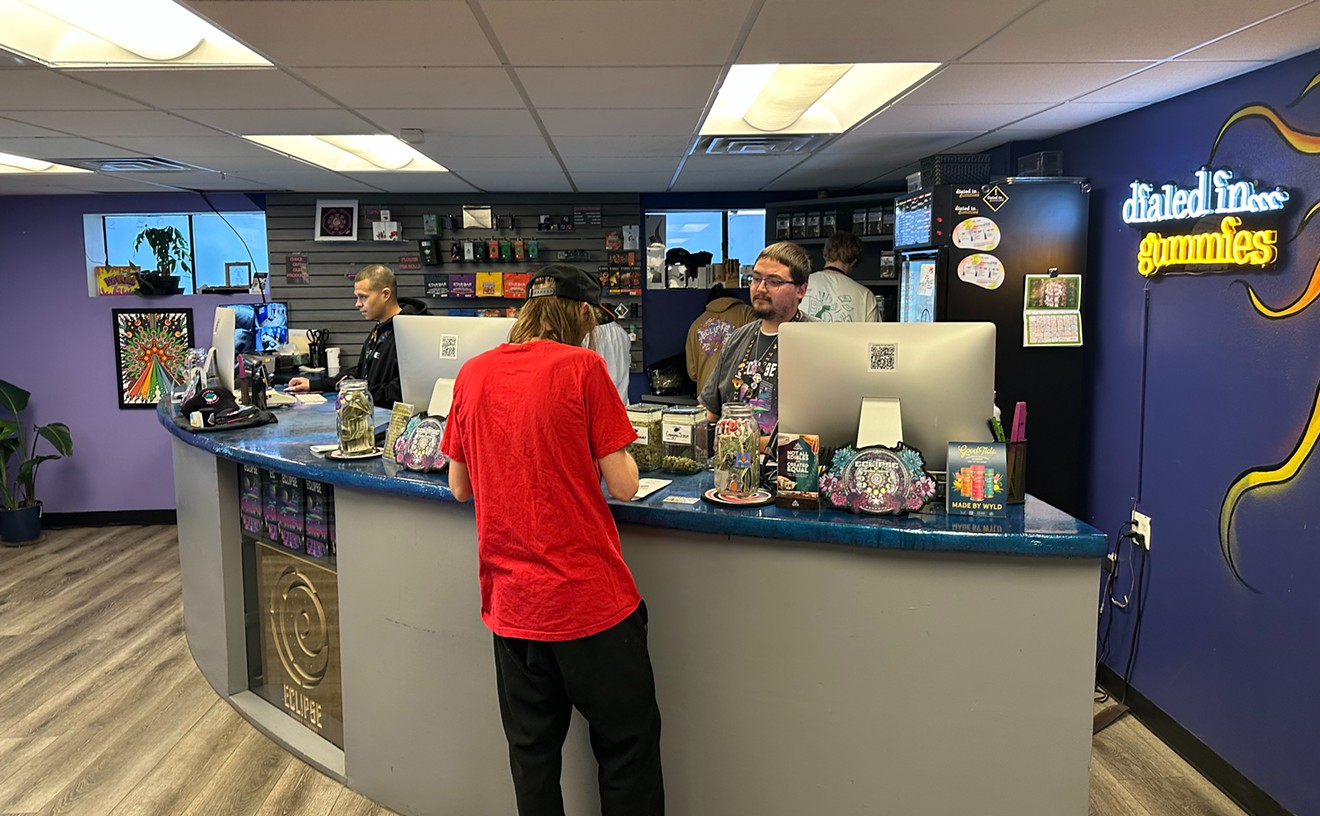Under Amendment 20, which legalized medical marijuana in Colorado in 2000, medical users can grow up to 99 plants in their private residences, while 2012's Amendment 64 allows recreational users to combine their allotted six plants into co-ops, effectively creating large-scale growing operations in which the plants aren't taxed or tracked by the state.
Hickenlooper's proposals include a statewide twelve-plant limit on grows in private residences. Denver already enforces a twelve-plant cap within city limits and is currently researching home grows and discussing possible new ordinances.
According to Hickenlooper, the state's liberal plant quotas prevent law enforcement from easily distinguishing between legal and illegal grows, thereby enabling black-market fronts to operate undetected. The state's plant limits are the highest in the nation, which may attract crime organizations that grow pot legally but sell it illegally in other states, he suggests.
Andrew Freedman, Colorado's director of marijuana coordination, spoke to the Colorado Legislature's Special Issues Marijuana committee earlier this month. "People are abusing the unlicensed industry in order to ship [pot] out of state," he said. "Having the loosest
Freedman cited other frequent complaints related to large unlicensed grows, including property damage, water and electricity theft and fire danger. Freedman also said that rural law enforcement agencies are overburdened with investigating potentially illegal marijuana grows, as most large-scale grows are based in rural counties.
In addition to a statewide twelve-plant cap, Hickenlooper's proposals include providing monetary assistance to rural law enforcement agencies. The twelve-plant cap would still be more generous than caps in other states: California allows recreational users only six plants per home, while Washington requires those who wish to grow more than four plants to register with the state.
Although Denver already caps plants at twelve per private home, the city is considering implementing additional restrictions on home grows in 2017. "We always have had our eyes on the issue of non-licensed grows," Denver Department of Excise and Licenses director Ashley Kilroy told the marijuana committee. According to Kilroy, Denver continues to see "problems with home grows" despite various regulatory ordinances the city has enacted since 2014.
Though Kilroy did not specify what, exactly, the city might do to curtail the abuse of non-licensed grows, she told the marijuana committee that a city work group, the Non-Licensed Marijuana Grows Inspection Team, is currently collecting data on home grows. The team will meet in the final weeks of this year to discuss possible solutions, and plans to introduce new proposed regulations during the first three months of 2017.
Denver-specific plans could overlap with some of Hickenlooper's statewide proposals, which include providing alternate, non-residential space in which caregivers and patients can grow larger numbers of plants according to medical need; caregivers would be required to keep track of where their plants go. Hickenlooper also hopes to break up large recreational co-ops by creating a more specific definition for Amendment 64's assistance program.
"We are going to define that 'assist' does not mean possession. You can go and assist someone in growing six plants, but those have to be on their property," Freedman said. "That would be in order to stop these large, unlooked-after co-ops we've seen."
Both Kilroy and Freedman emphasized to the committee that the goal of a hard plant limit is to prevent the illegal sale of plants produced in unlicensed grows and stop the abuse of Amendments 20 and 64, not to violate the constitutional rights of law-abiding caregivers and patients.
Kristi Kelly, the interim executive director of the Marijuana Industry Group, underlined the need to protect the rights of patients and caregivers. "We're asking for collaboration in finding the right practical solutions to this issue — exploring
Any proposed restrictions on home
Hickenlooper's plans are already drawing criticism from marijuana activist organizations, who say that the proposed regulations would prevent patients from receiving the marijuana they are prescribed.
Terri Robnett, head of the Cannabis Patients Alliance, urges lawmakers to wait for the caregiver registry to take effect before introducing new restrictions. "They need to stop, let this new system go into effect, and see what the results are before they start putting more legislation in," she says.
Caps on home
"We need to stop putting politics before patients' lives."










